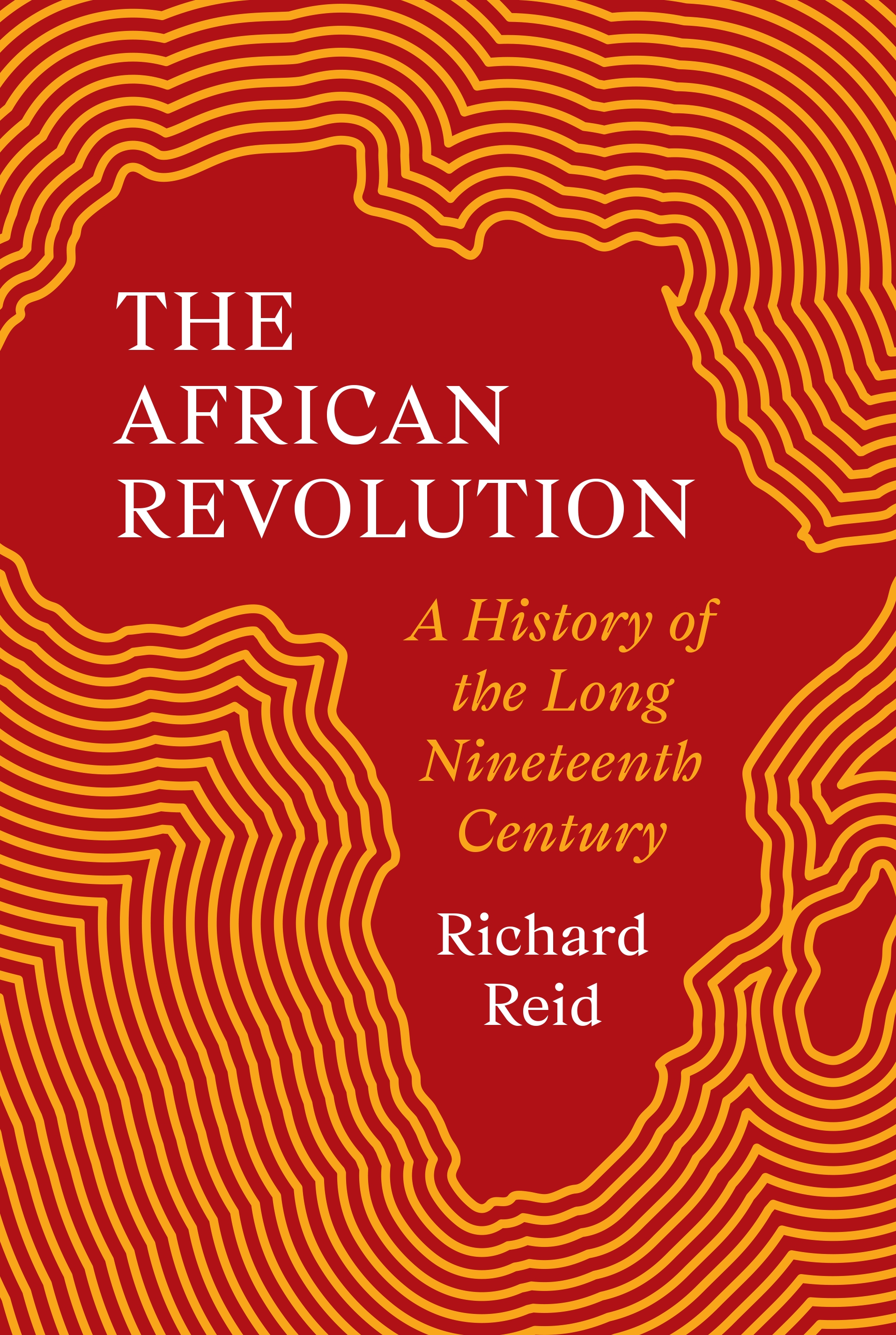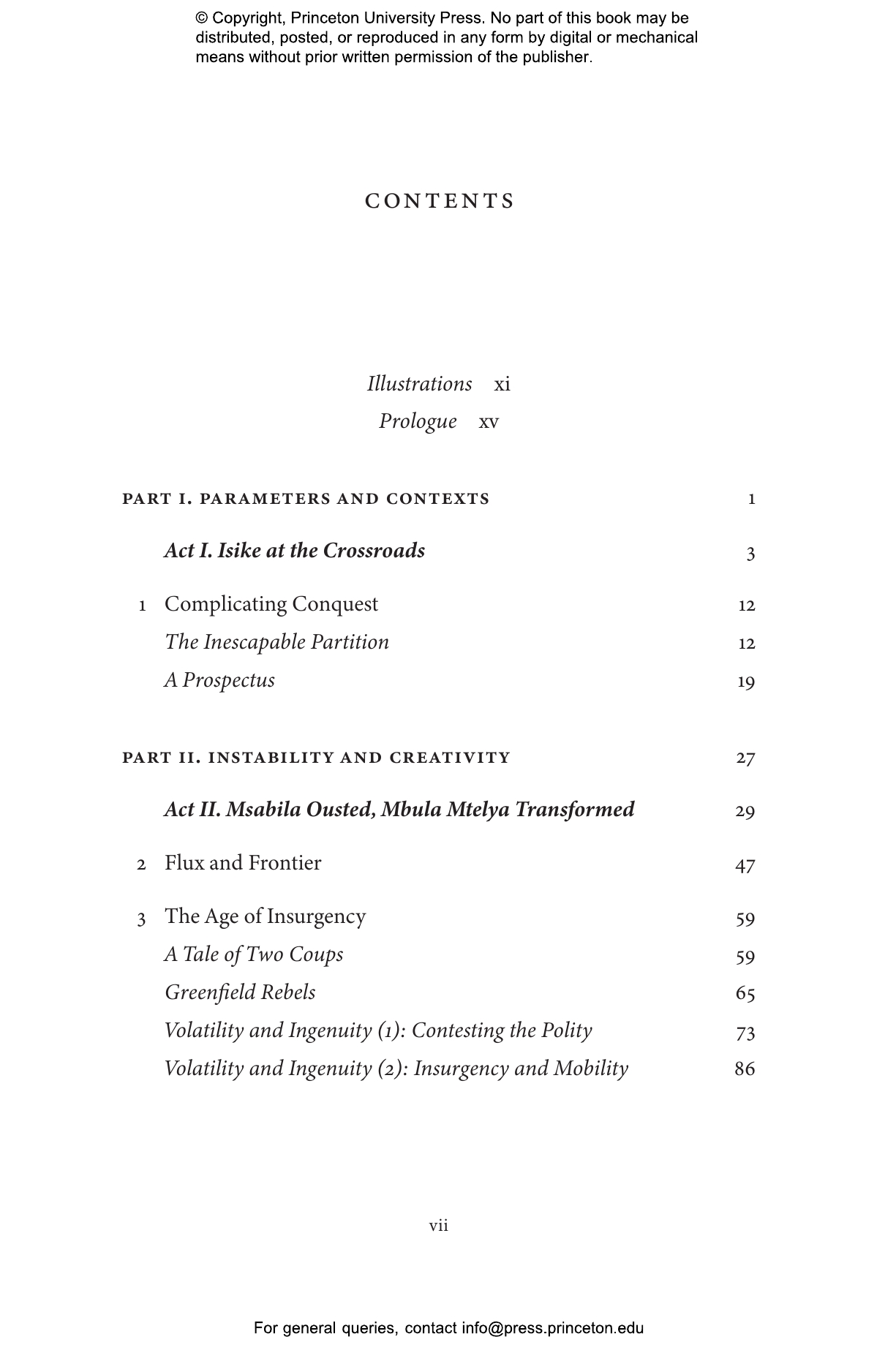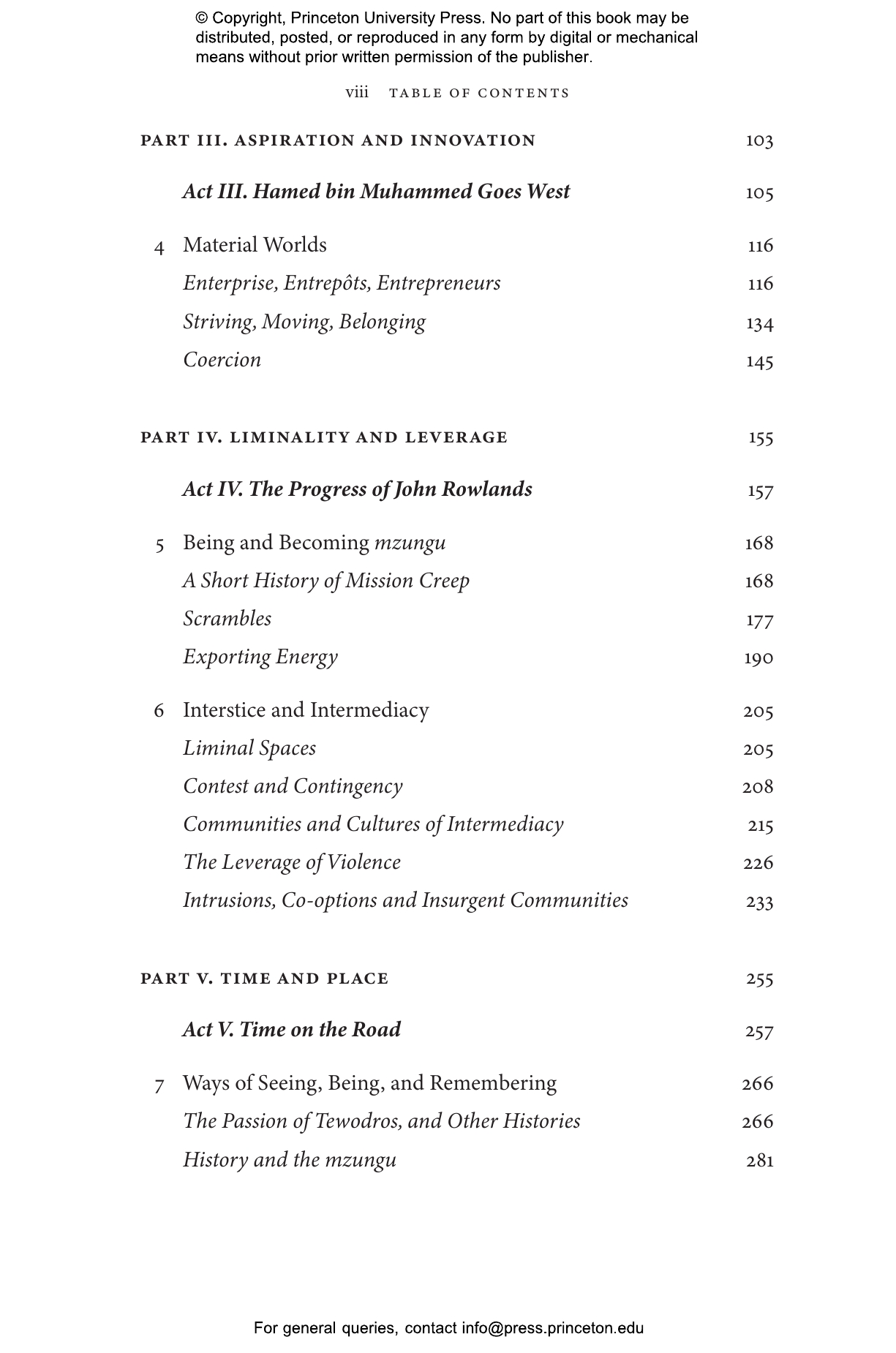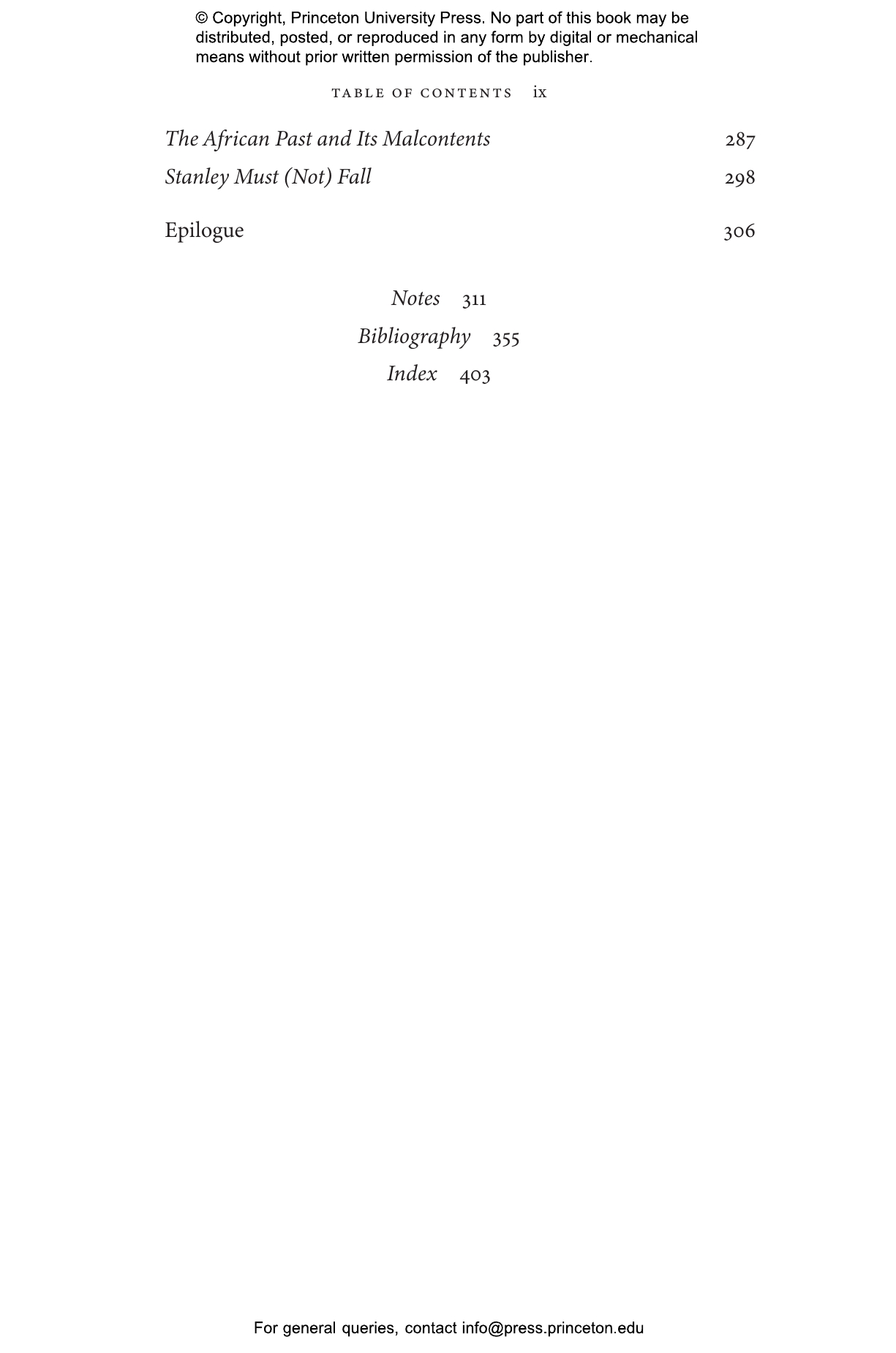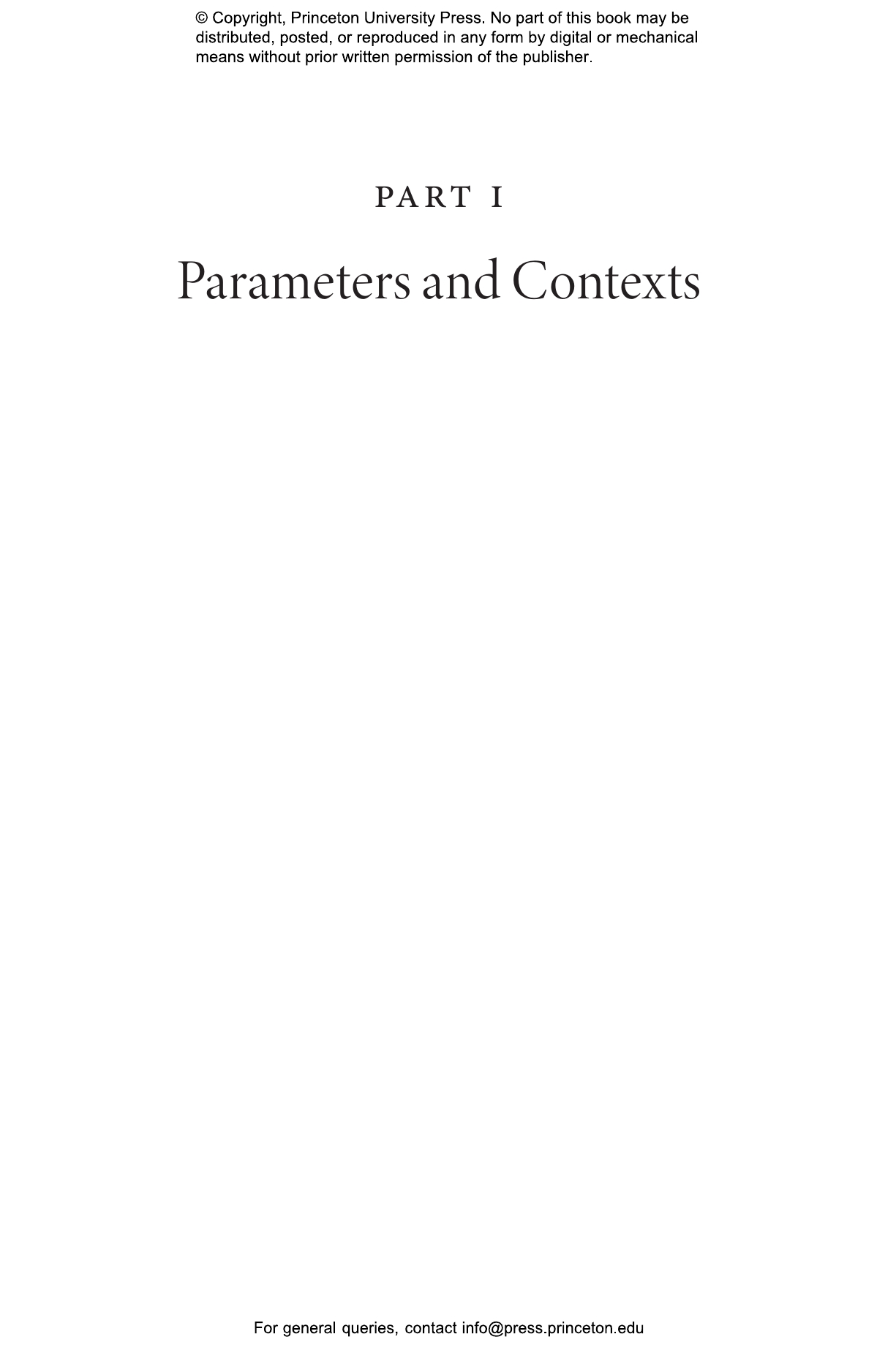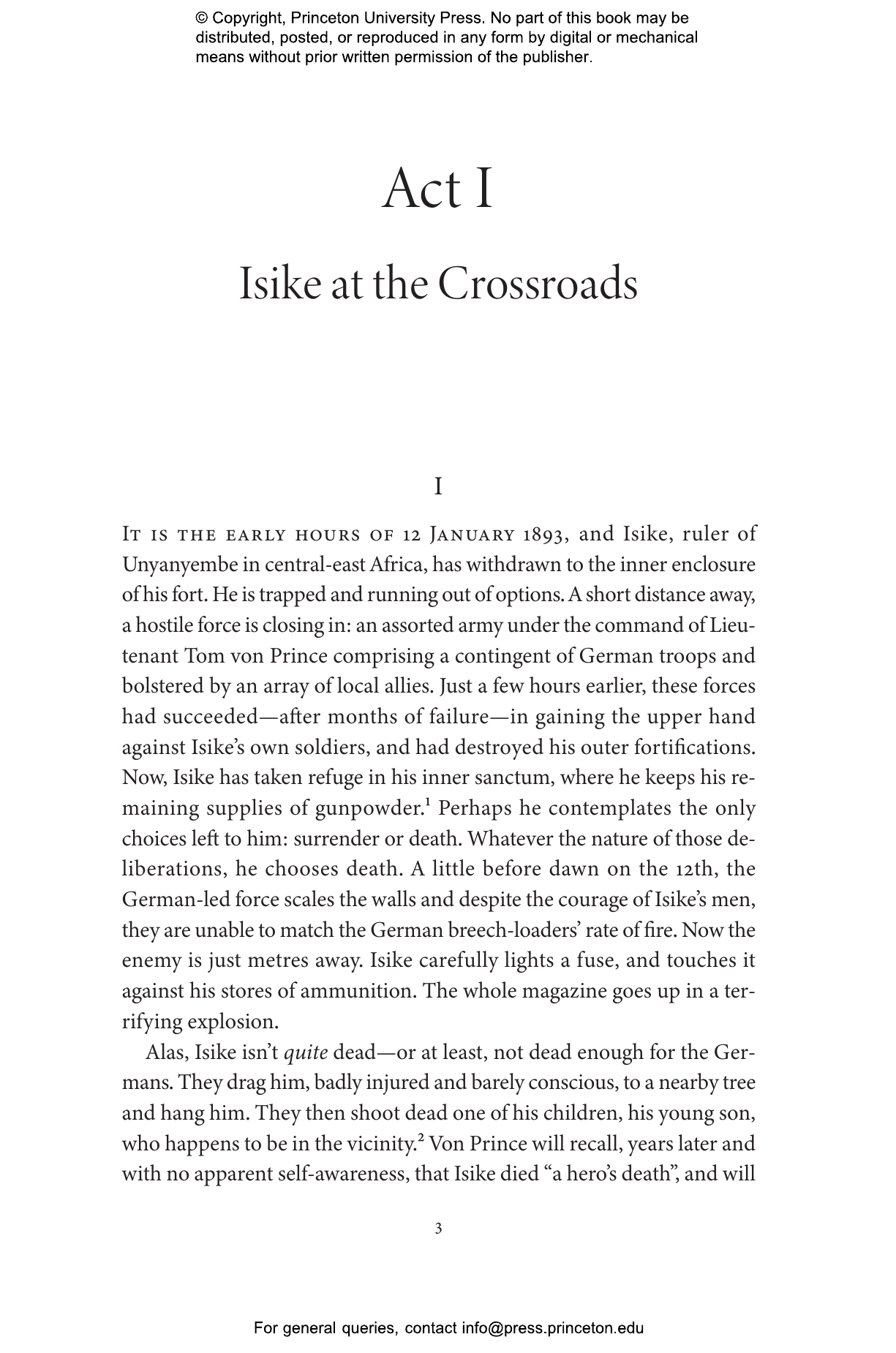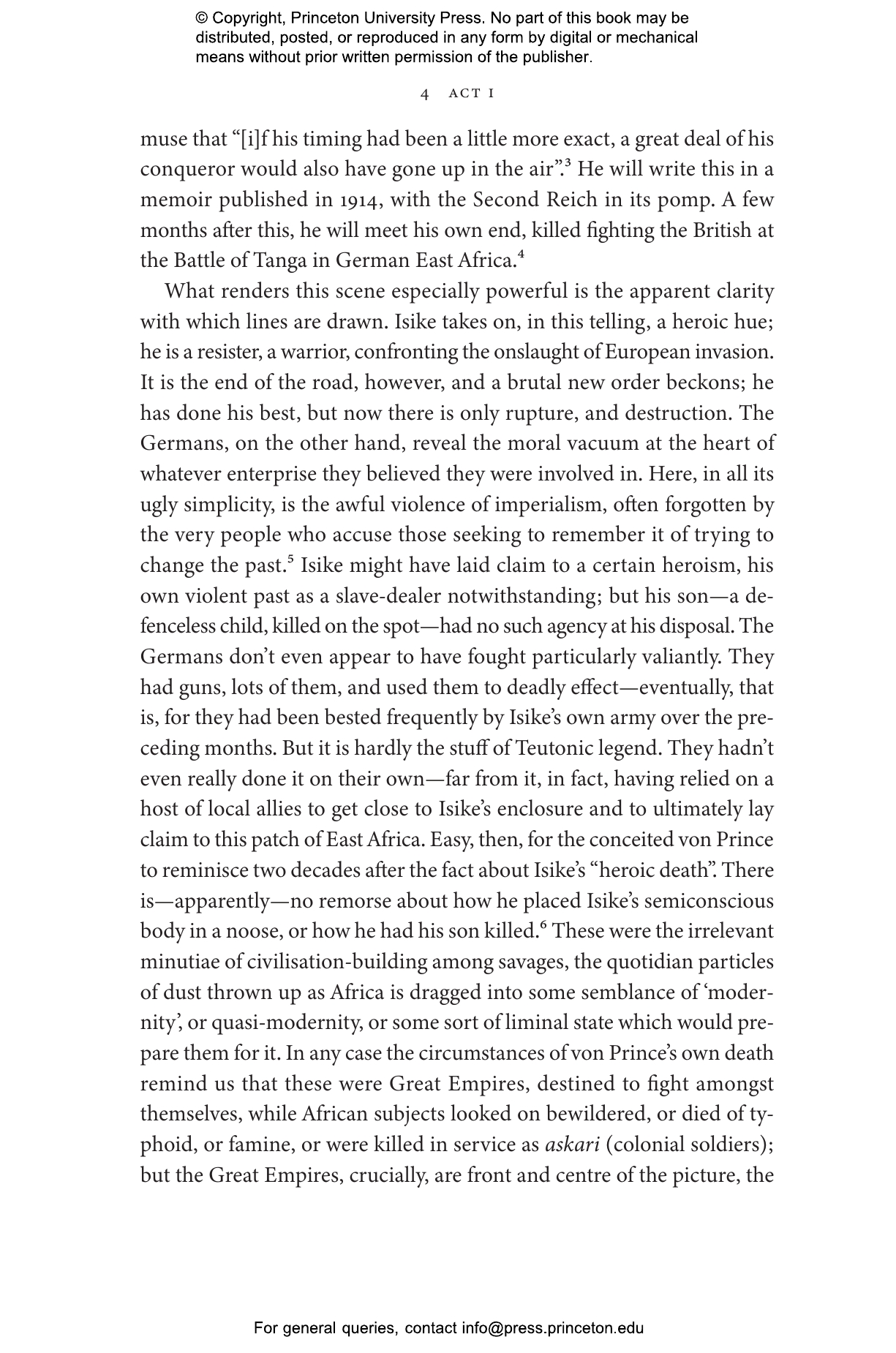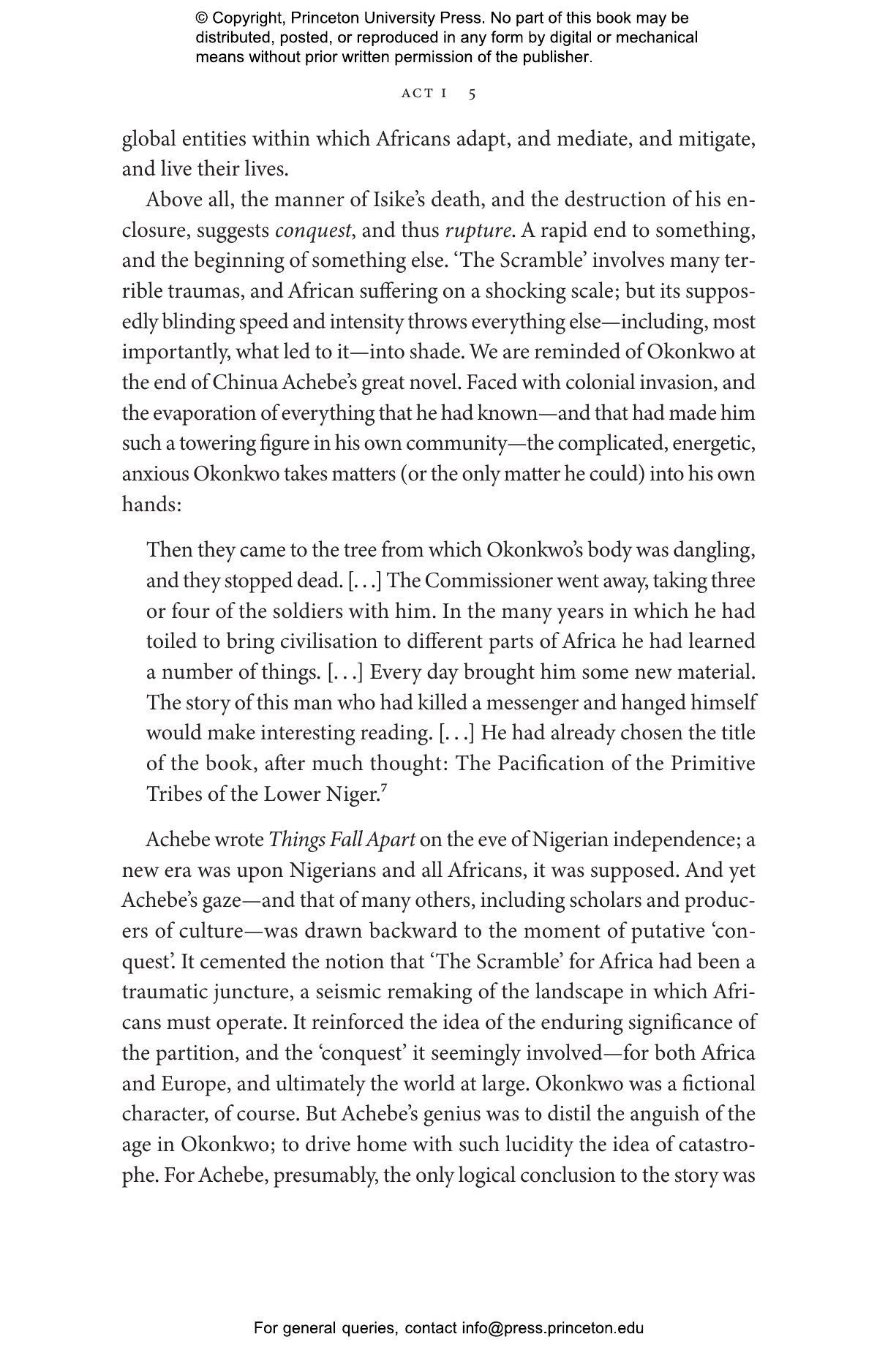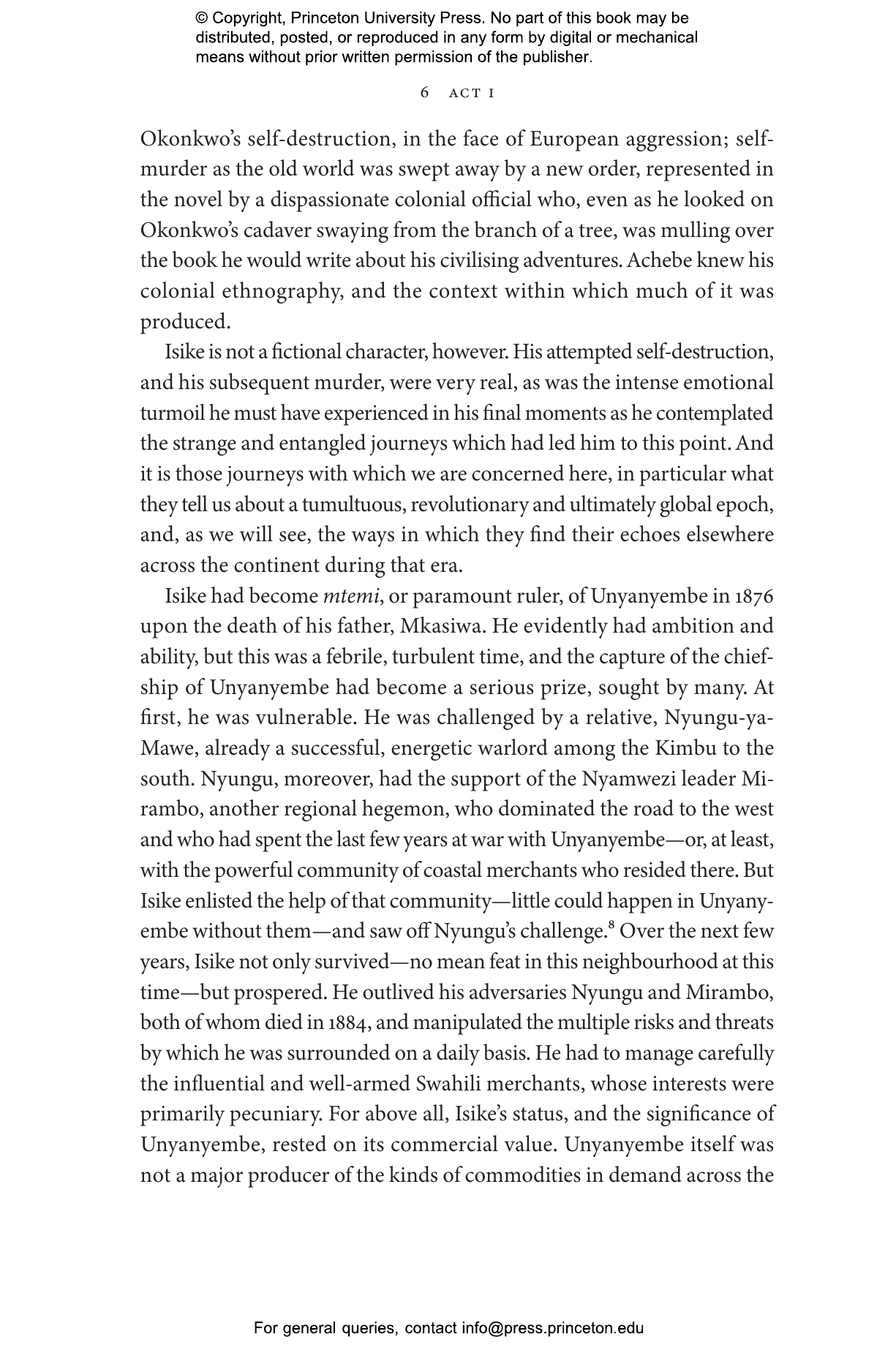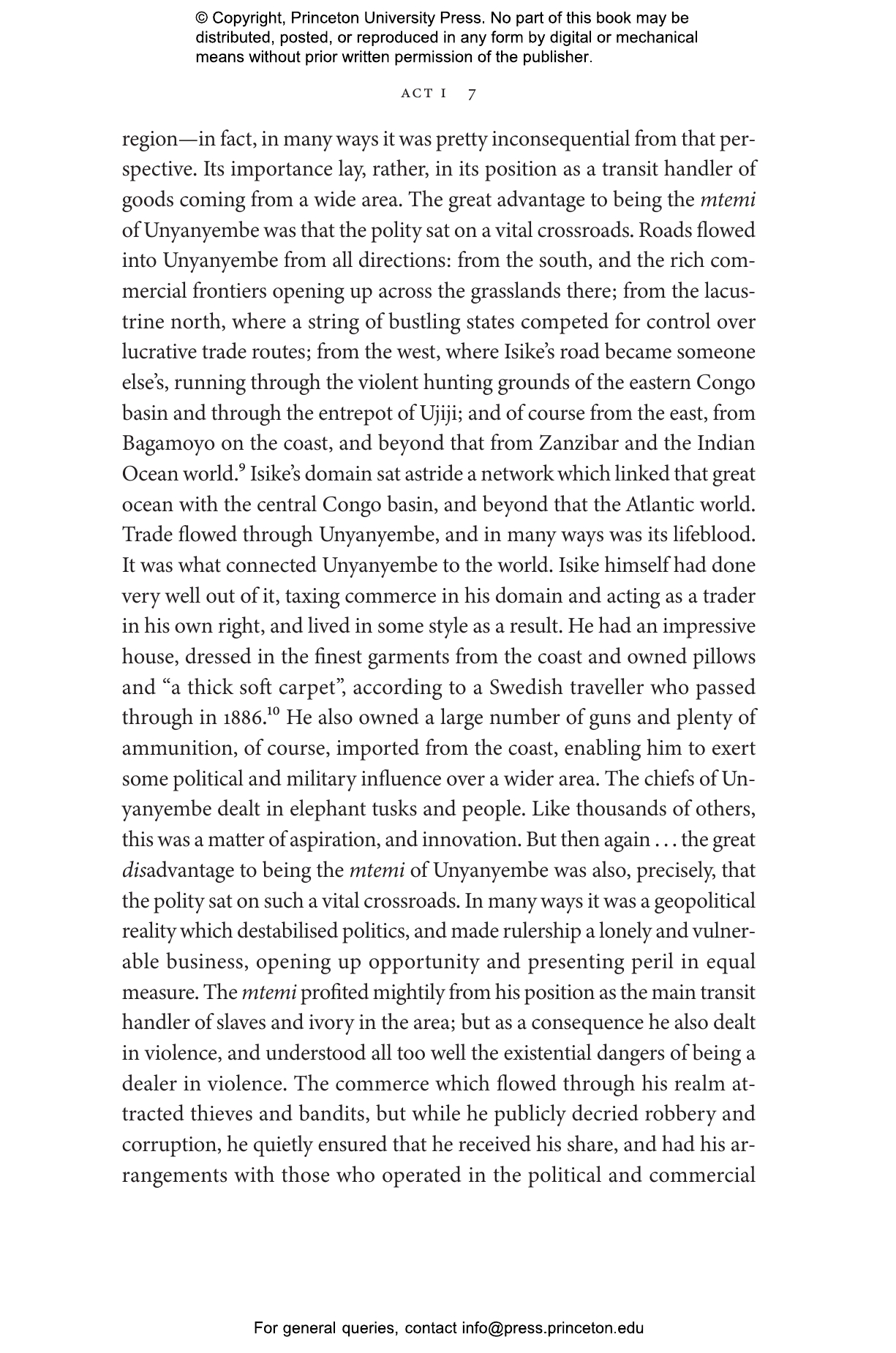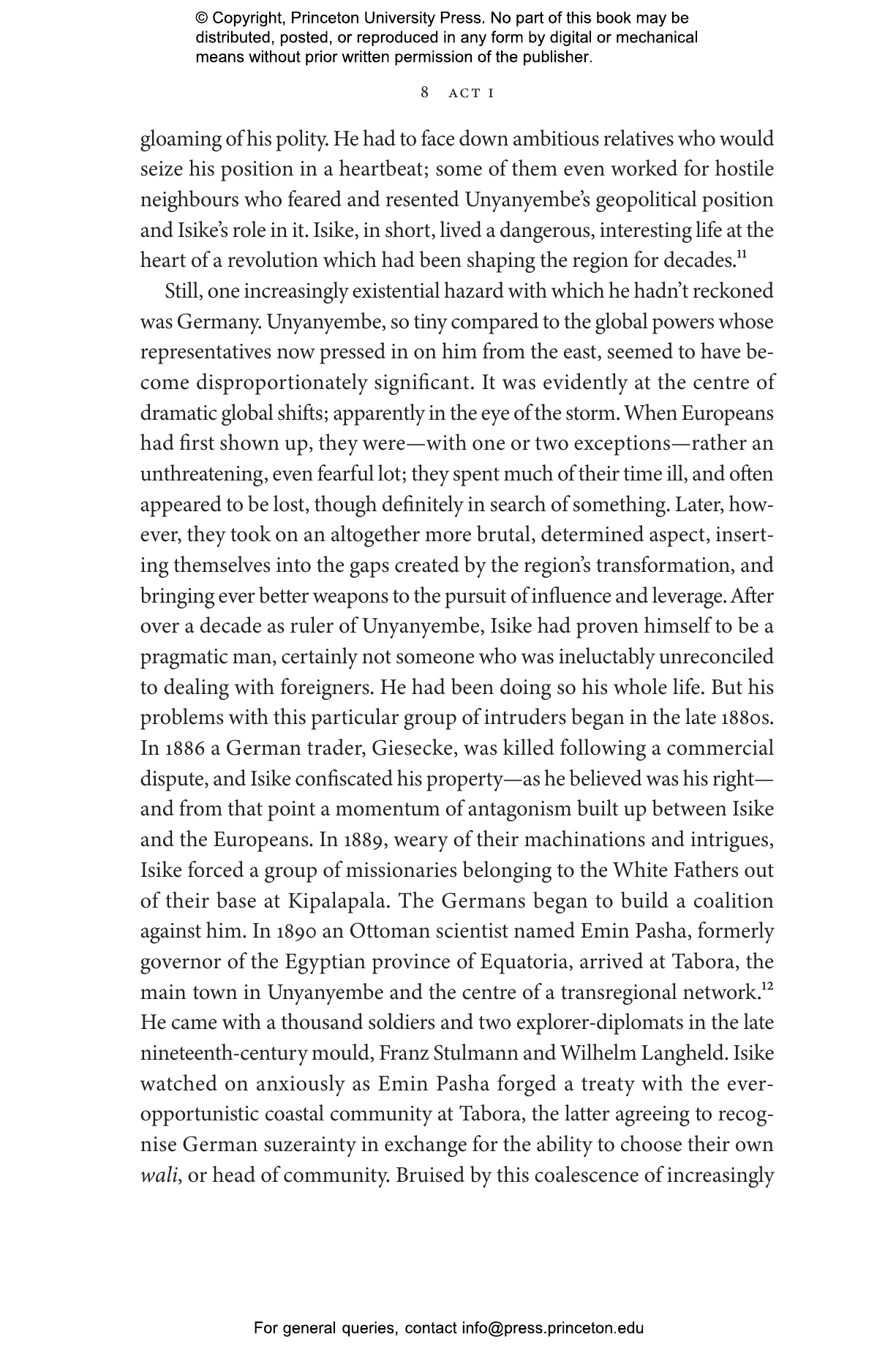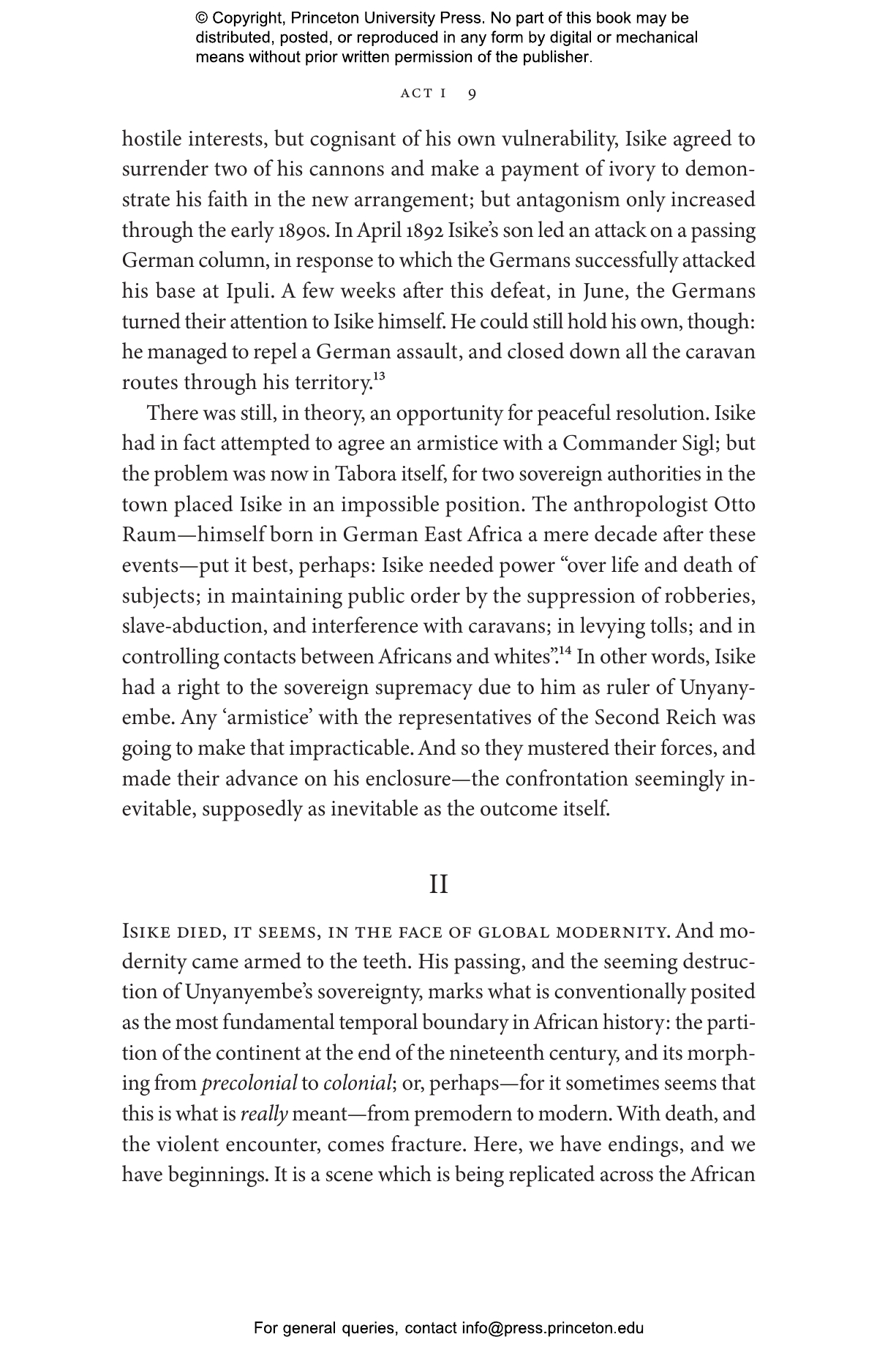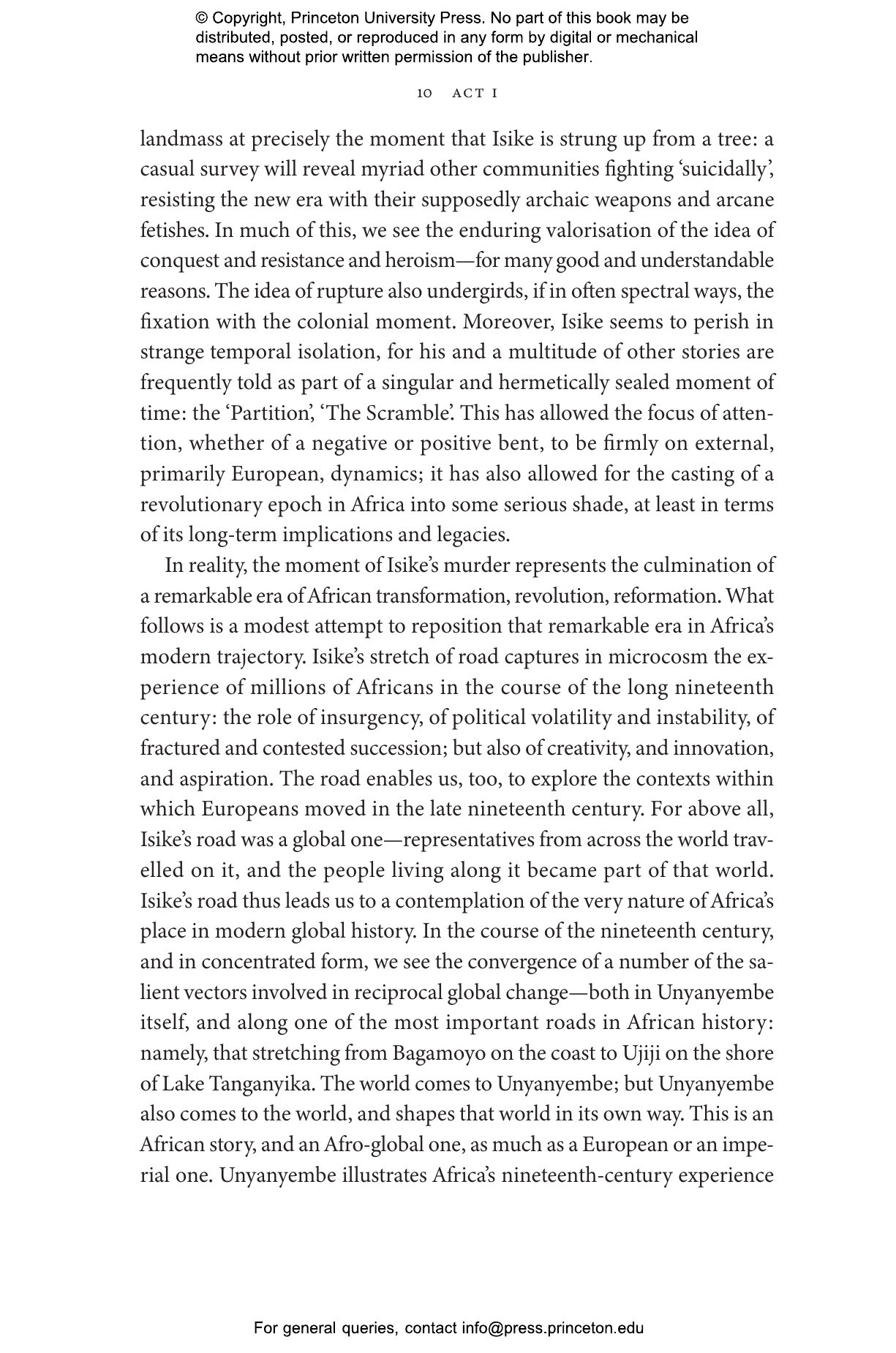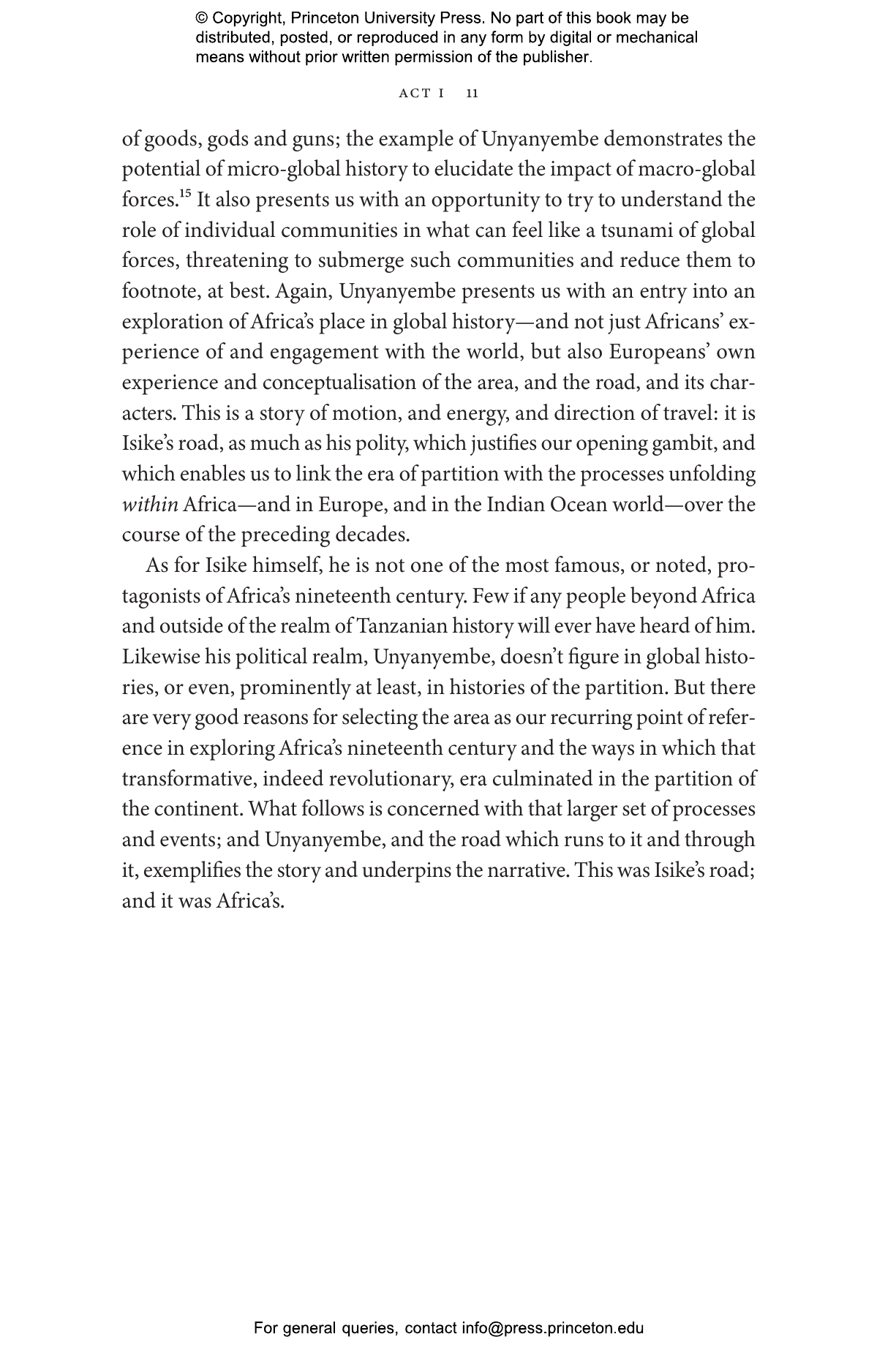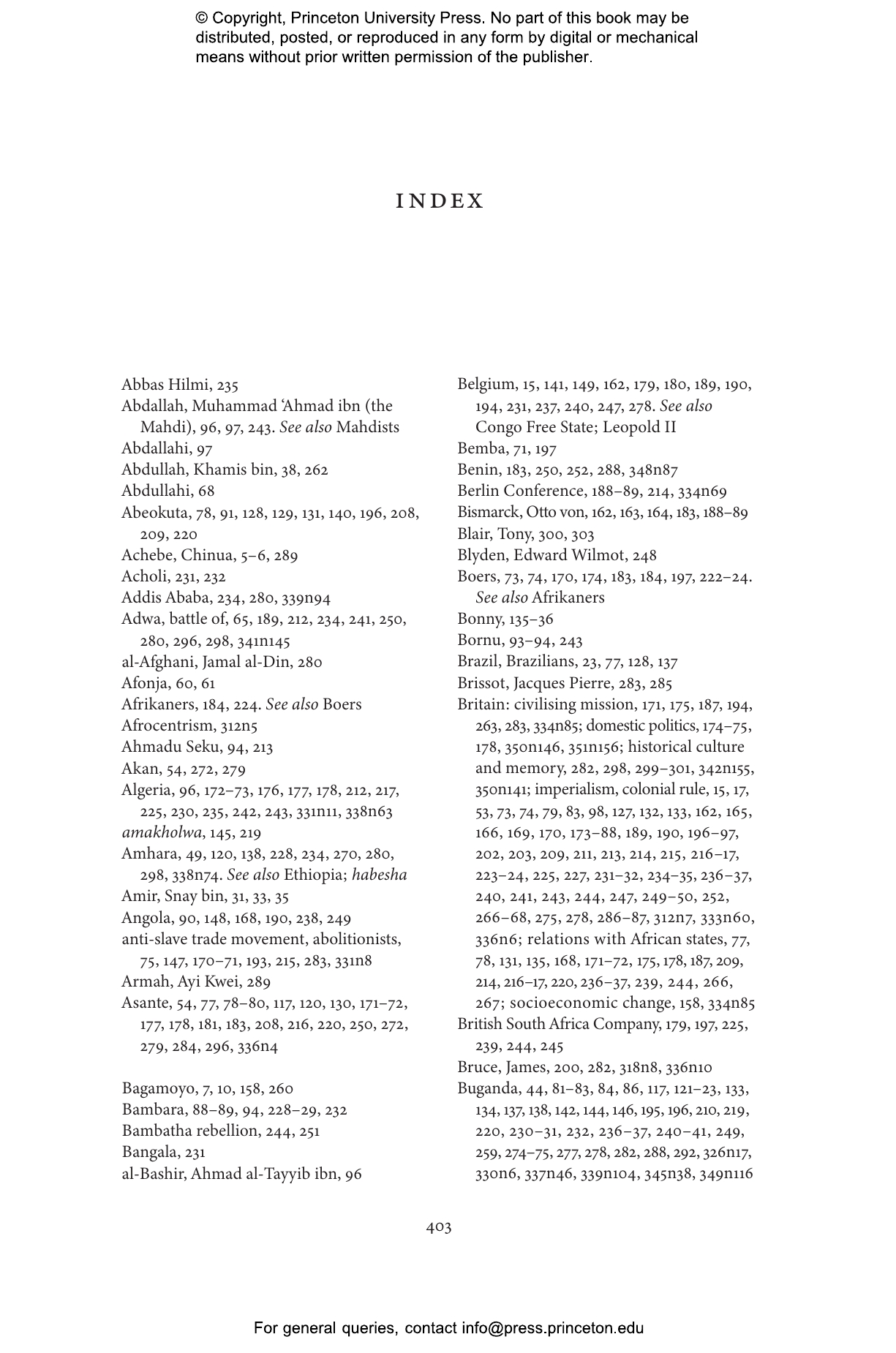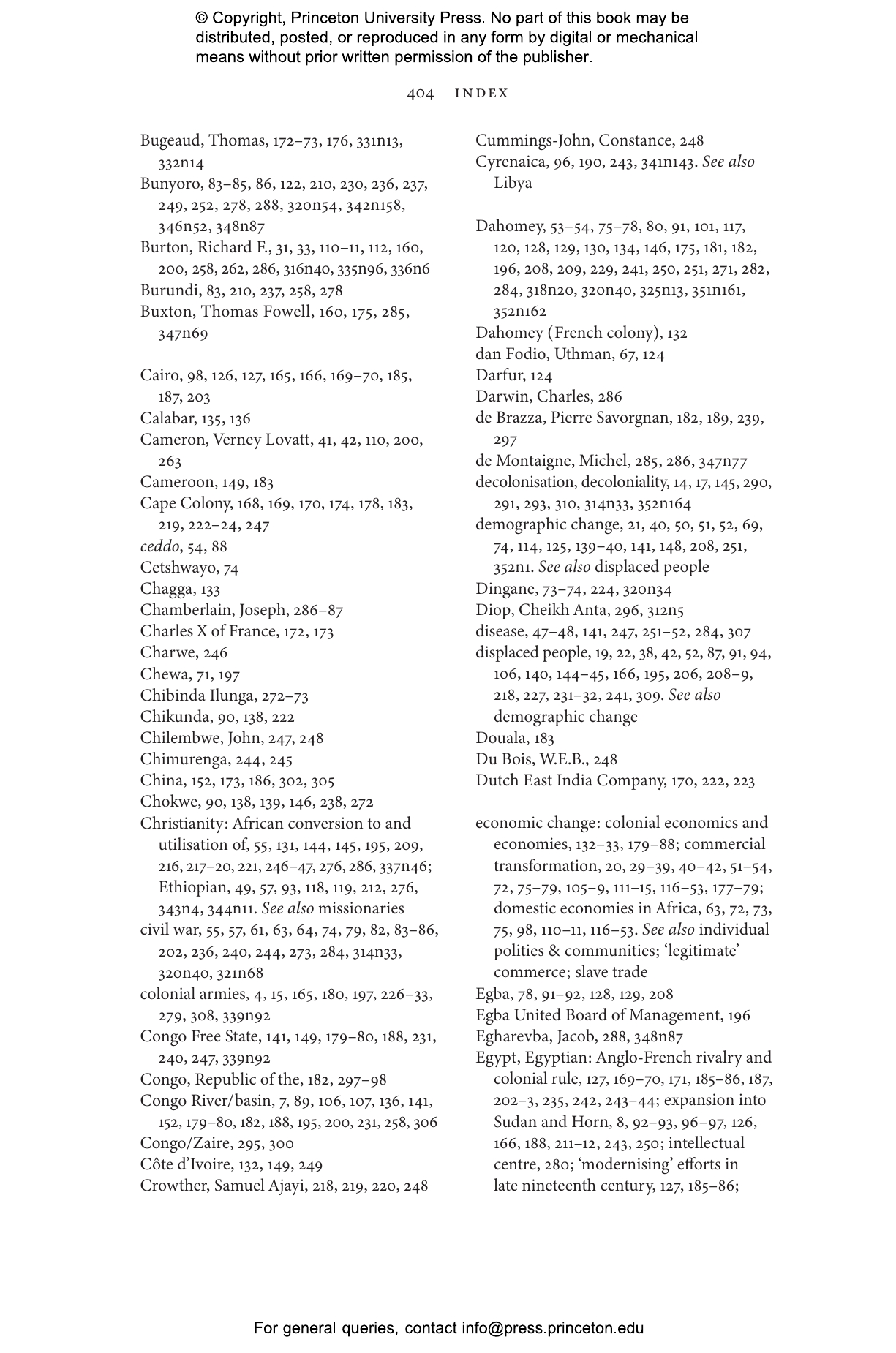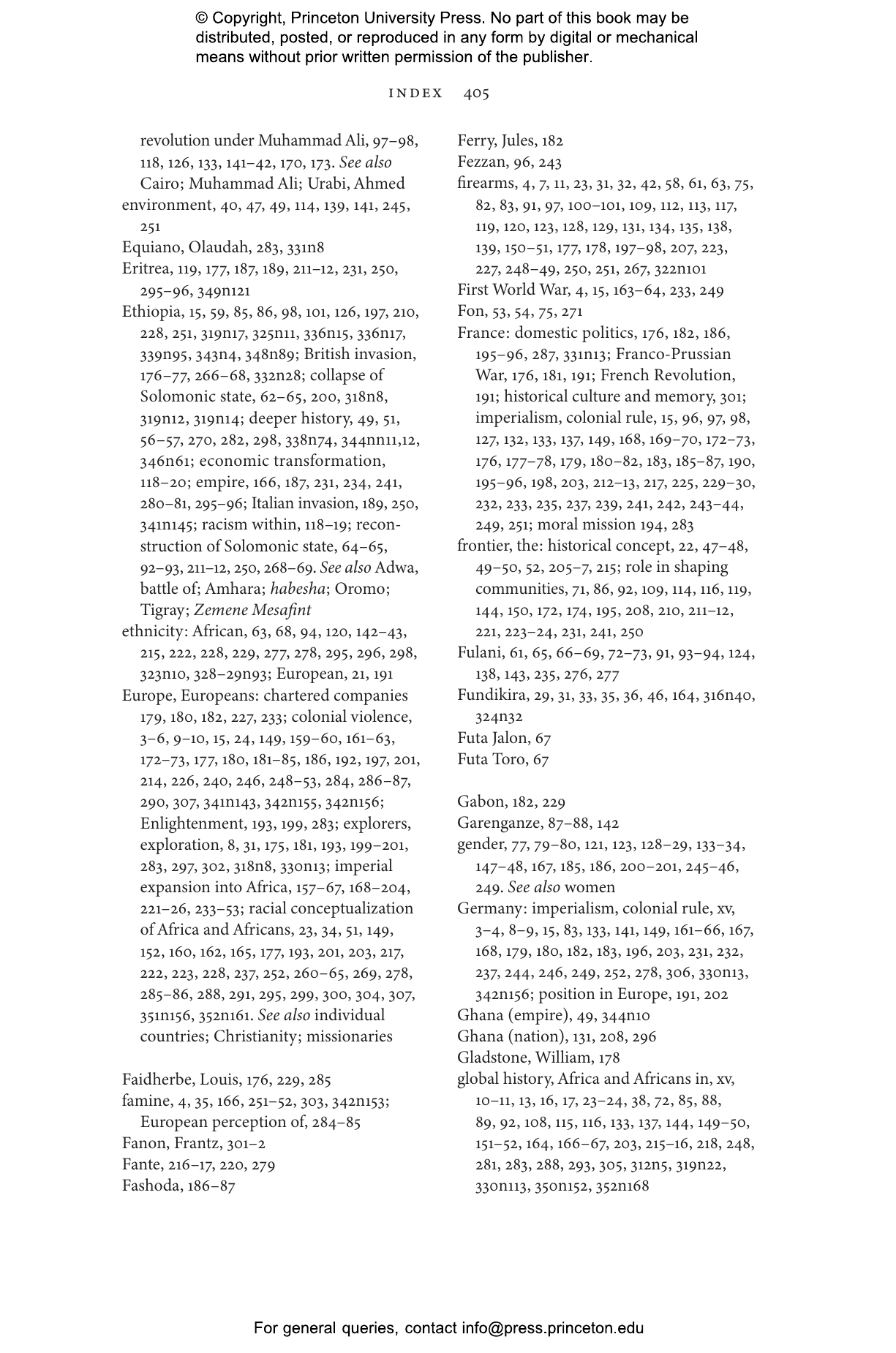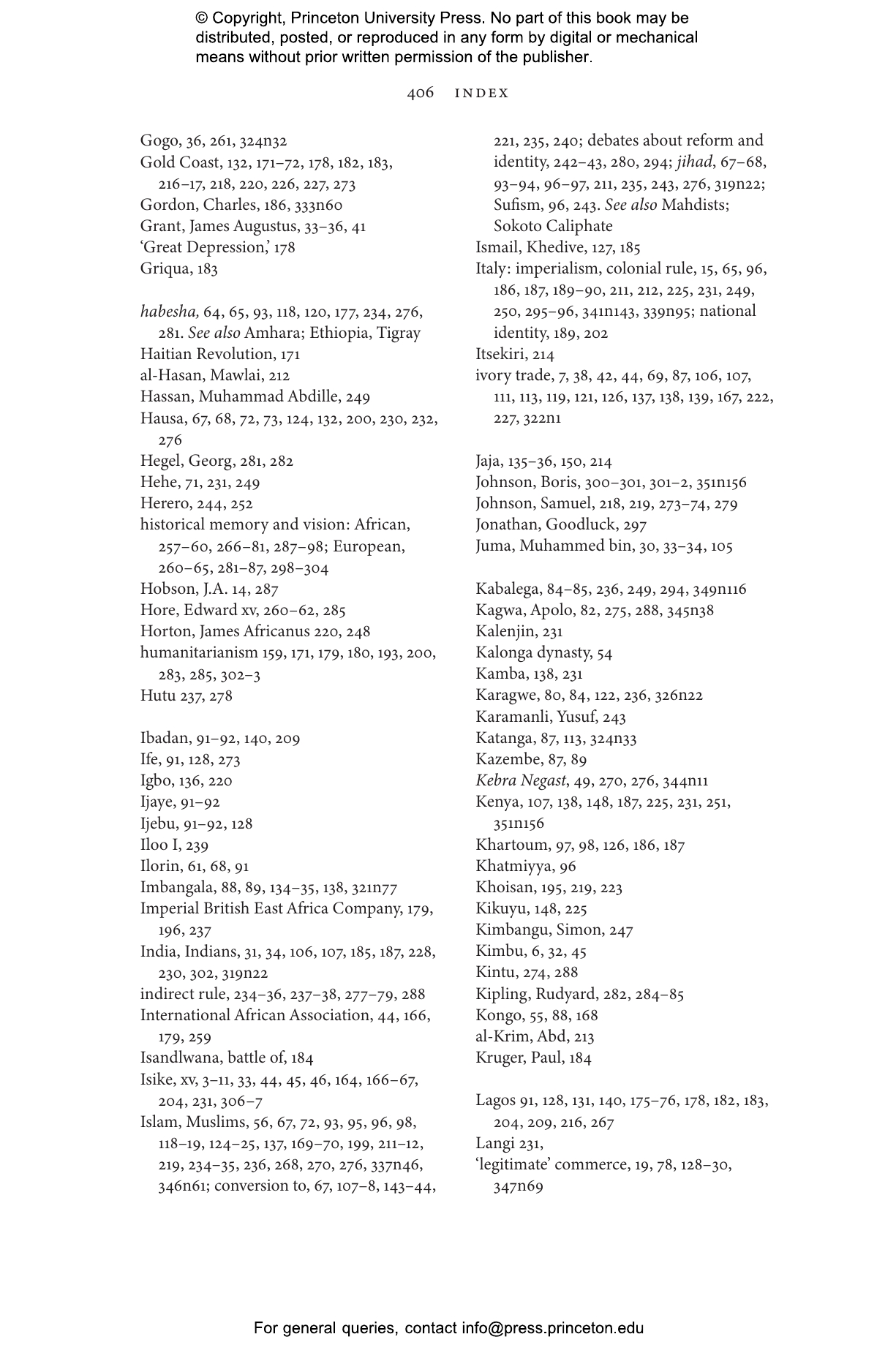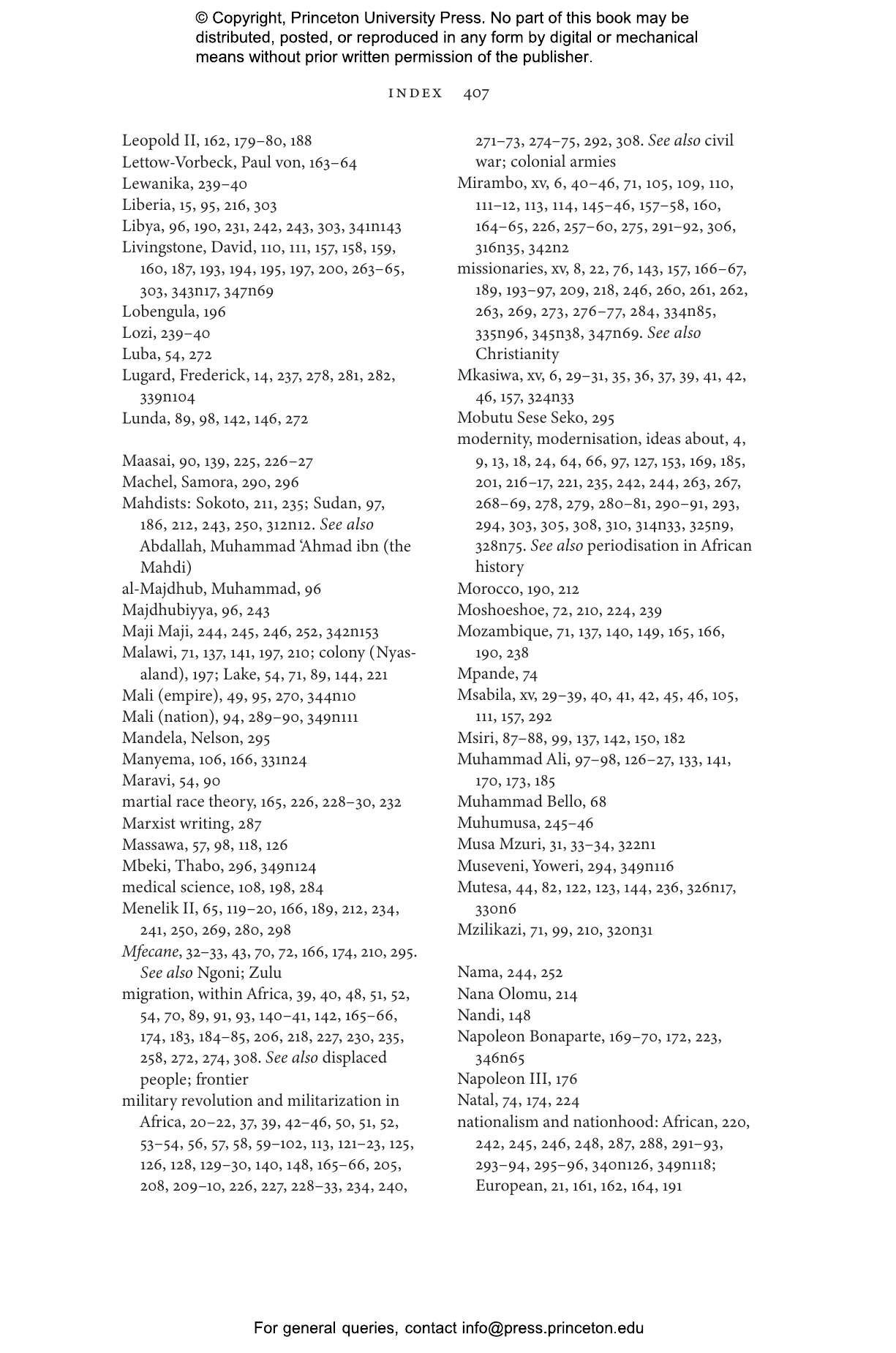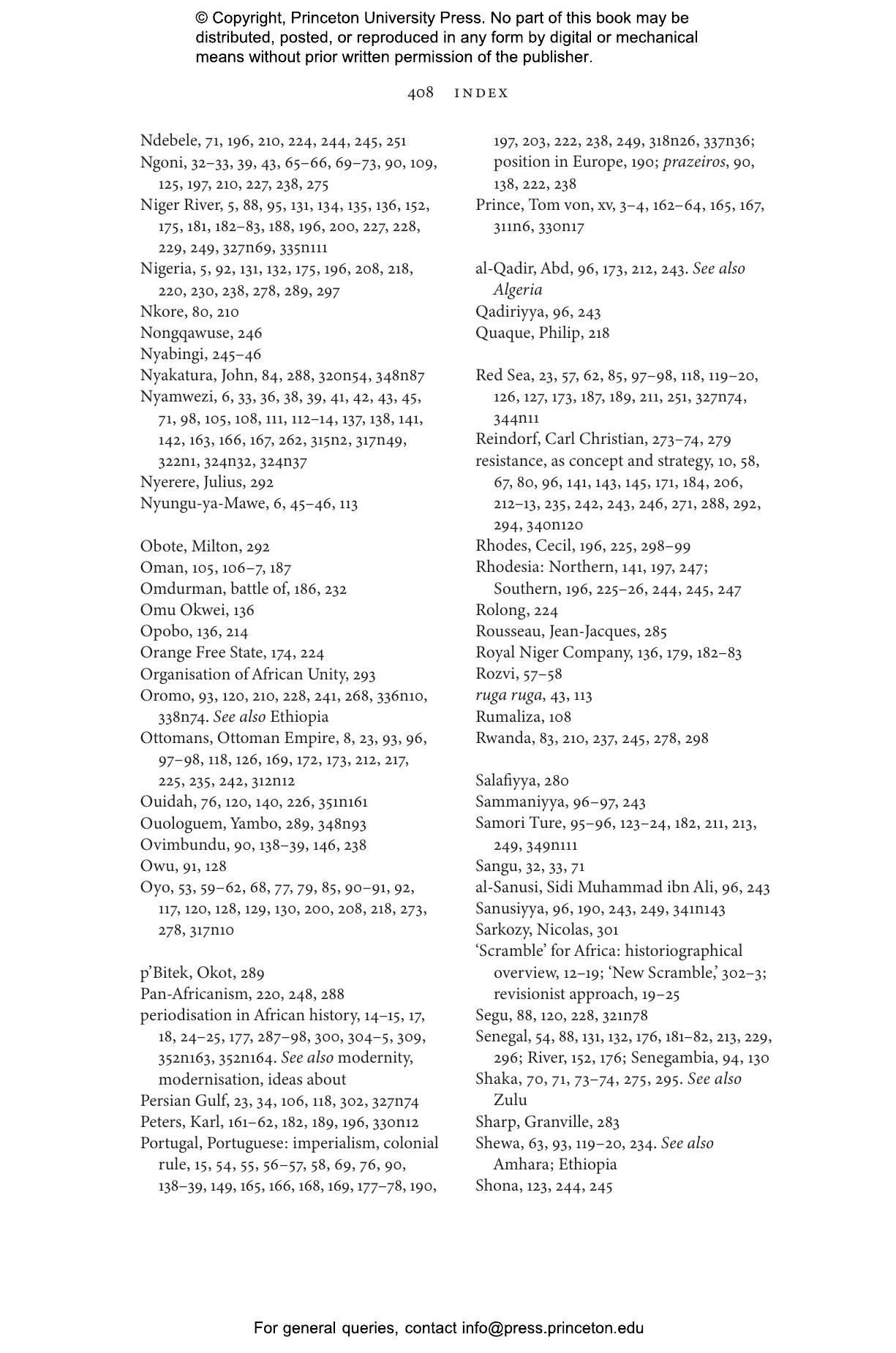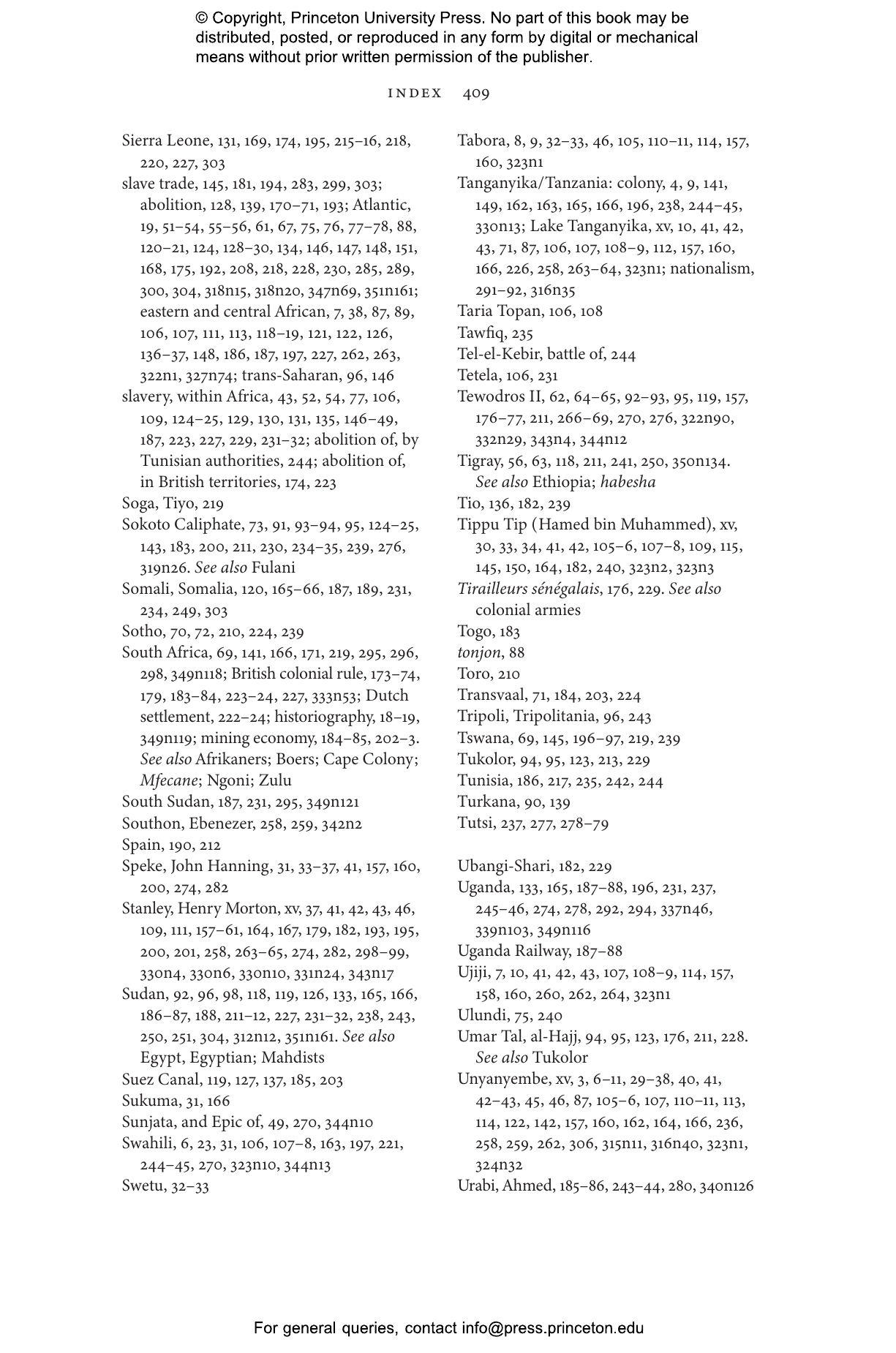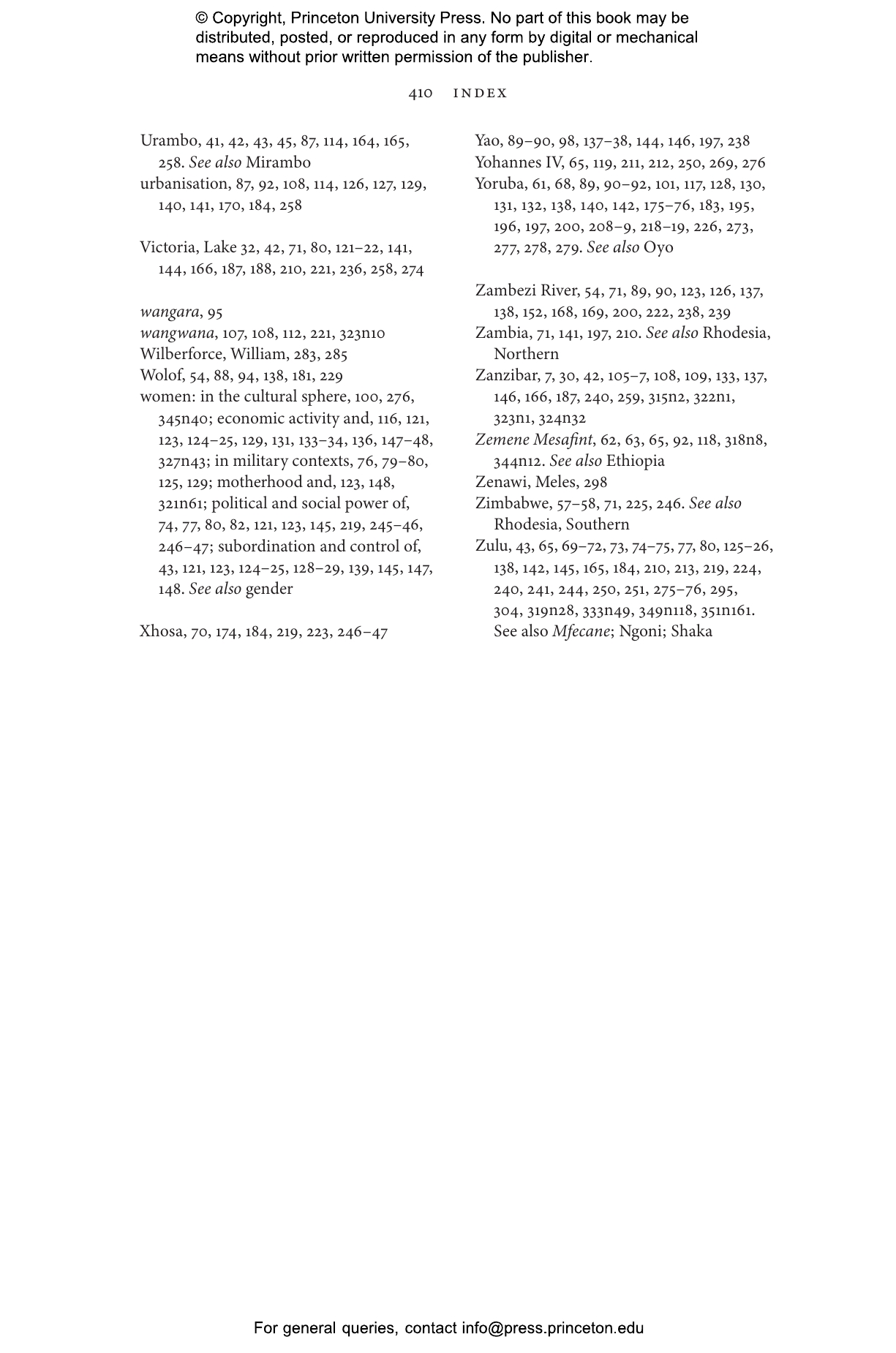Africaâs long nineteenth century was a time of revolutionary ferment and cultural innovation for the continentâs states, societies, and economies. Yet the period preceding what became known as âthe Scramble for Africaâ by European powers in the decades leading up to World War I has long been neglected in favor of a Western narrative of colonial rule. The African Revolution demonstrates that âthe Scrambleâ and the resulting imperial order were as much the culmination of African revolutionary dynamics as they were of European expansionism.
In this monumental work of history, Richard Reid paints a multifaceted portrait of a continent on the global stage. He describes how Africa witnessed the emergence of new economic and political dynamics that were underpinned by forms of violence and volatility not unlike those emanating from Europe. Reid uses a stretch of road in what is now Tanzaniaâone of the nineteenth centuryâs most vibrant commercial highwaysâas an entry point into this revolutionary epoch, weaving a broader story around characters and events on the road. He integrates the African experience with new insights into the deeper currents in European societies before and after conquest, and he shows how the Africans themselves created opportunities for European expansion.
Challenging the portrayal of Africaâs transformative nineteenth century as a mere prelude to European colonialism, The African Revolution reveals how this turbulent yet hugely creative era for Africans intersected with global intrusions to shape the modern age.
"An interactive history. . . . [and] a fresh perspective."âLibrary Journal
"A well researched book about a much neglected period of African history. . . . An important contribution for allowing the history of Africa to stand in its own right rather than in relation to Europeans."âRoger McKenzie, Morning Star
"This is a big book from a skillful writer: clever, full of ideas and insights and stimulating, as well as provocative."âJustin Willis, The Irish Times
"Richard Reid provides a wealth of scholarly evidence about an era often neglected in favour of a European narrative of colonial expansion."âMartin Meredith, Times Literary Supplement
"Reid . . . revises readers' understanding of the traditional division of the African past, which typically presupposes that it moved from a precolonial, to a colonial, and then more recently to a postcolonial period, through a problematic understanding of the implementation of the colonial period via the Scramble."âChoice
"[A] tour de force. . . . Reid’s book is a critical intervention and brings much new and needed detail to the field of African Studies."âEmma Christopher, Australian Book ReviewÂ
“Richard Reid weaves a rich tapestry that entwines local and global African histories, displacing the “the Scramble” as the defining moment of the continent’s long nineteenth century. Reid’s argument is anchored in his formidable and textured knowledge of East African history, but at the same time, he never loses sight of how this region’s revolutionary and often violent histories paralleled those occurring elsewhere on the continent and around the world. Reid’s intricate, lively book challenges readers to situate “the Scramble” within the sweep of global history, rather than as the main determinant of Africa’s twentieth century.”—Michelle Moyd, Michigan State University
“With masterly erudition, Reid argues that the creativity of African political and economic entrepreneurship before and during partition did much to shape the future, colonial and postcolonial. This highly original and partly provocative analysis, lucidly written, powerfully challenges the received notion of the European partition of Africa as a watershed in African history.”—Gareth Austin, University of Cambridge
“This is a hugely impressive achievement, a book that highlights the vitality of African societies through the continent’s long nineteenth century. Its success derives from the blend of large-scale analytical insight and intimate biographical detail, and Reid’s insistence on the enduring power of African reformism.”—Shane Doyle, University of Leeds


